Former ambassador Chas Freeman, Jr. argues that we have entered a new era in which players are shifting on the geopolitical chess table.
Opinions published in The Markaz Review reflect the perspective of their authors and do not necessarily represent TMR.
For the past two centuries, the West Asian and North African sub-region we call the Middle East has been the playground of external empires and great powers. But for millennia it was itself the birthplace of its own great empires and religions. Now, in the new world disorder, the nations of the Middle East [also referred to collectively as SWANA] are re-emerging as powers with regional and global influence. This is altering the relations of the United States and other external powers with them in ways that cannot be explained by “great power rivalry” and cannot be addressed by military means.
The death of the Prophet Muhammad in Medina in 632 was followed by a century of rapid Arab expansion under the Rashidun and Umayyad Caliphates. But in 732 at Tours, in what is now France, an army led by Charles Martel defeated the forces of `Abdulrahman Al-Ghāfiqi, the Emir of Córdoba and governor of al-Andalus. And in 751, a combined Abbasid and Tibetan army bested the forces of China’s Tang Dynasty at Talas River in what is now Kazakhstan but was then able to advance no further. These events halted the military expansion of the empires of the Arabs and established their subsequent western and eastern boundaries.
From the 7th through the 18th centuries, Islam and Arab influence continued to spread across Eurasia and Africa. But in July 1798, Napoleon conquered Egypt, ushering in two centuries of dominance and division of the Middle East by European imperialism, colonialism, and neocolonialism. That era, like the five centuries of Euro-Atlantic global primacy, is now coming to an end. The nations of the Middle East are becoming independent and increasingly influential actors in world affairs.
In the aftermath of World War II, the violent establishment of the state of Israel, the expulsion of the British occupation from Egypt, Egypt’s nationalization of the Suez Canal, the independence of Morocco from France and Spain, and Algeria’s hard-fought war for independence marked the retreat of European imperial rule in West Asia and North Africa. Western powers nonetheless continued to intervene in the region’s politics, as illustrated in the 1953 Anglo-American overthrow of the democratically elected government of Mohammad Mossadegh in Iran, CIA-sponsored coup attempts in Syria in 1956 and 1957, American backing of insurgencies by Iraqi Kurds, and U.S. subsidies and diplomatic shielding of Israel’s ethnic cleansing and settlement activities in Palestine, among other less well-attested examples.
The Middle East now challenges American statecraft and diplomacy to set aside the purely military and ideological approaches that have defined recent U.S. policy and to replace custodial paternalism with respect for political and economic orders that differ from our own.
This humiliating history led directly to the 1979 Islamic Revolution in Iran, which rejected continued Western tutelage and replaced it with a defiant, homegrown Shi`ite theocracy. In response, the Gulf Arabs formed the Gulf Cooperation Council (GCC). Since the Islamic revolution in Iran, Arab Islamists — mostly Sunni — have periodically sought in vain also to cast off Western patron-client relationships, political and cultural influences, and post-colonial systems of governance. Islamist non-state actors and the misnamed “Arab Spring” uprisings of 2011 in Tunisia, Egypt, and Syria represent failed Arab efforts to assert political and cultural identities distinct from those imposed on them by external great powers or regimes dependent on them.
The resurgence of Islamist conservatism in formerly secular, partially Europeanized Turkey is yet another manifestation of the post-colonial hangover that is near the center of politics throughout “the global South.” A parallel dynamic is at play in Saudi Arabia today, despite it’s never having been penetrated by Western militaries or missionaries. The heartland of the Arabian Peninsula is experiencing its own reaction to decades of American cultural indoctrination and condescension as well as to the post-9/11 animosity of Americans to the Kingdom.
In the West, the increasingly unruly cantankerousness of previously compliant Middle Eastern client states is usually put down to “great power rivalry” and left unanalyzed. But the causes are far more complex. They include:
- The post-Cold War absence of common external enemies like the Soviet Union or assertively atheistic Communism to justify setting aside serious differences between the countries of the Middle East and the West.
- Doubts about U.S. reliability brought on by Washington’s almost gleeful abandonment of longstanding protégés like former Egyptian President Hosni Mubarak.
- U.S. unilateralism that has shown little, if any, regard for the perceived vital interests of client states in negotiations with Iran.
- Divided government in the United States that produces increasingly erratic American positions on pivotal security issues like the course of the wars in Iraq, Syria, and Yemen and the reliable sale of advanced weaponry.
- The lack of effective American and European responses to Iranian military challenges to freedom of navigation in the Strait of Hormuz or to attacks by Iranian-supported non-state actors on infrastructure in Saudi Arabia and the U.A.E.
- The sometimes-strident U.S. pursuit of ideological agendas that challenge scripturally based norms like the appropriate demeanor of women, the prohibition of apostasy, the impropriety of homosexuality, flogging, and capital punishment.
- The apparent end of the U.S. role as protector of the world’s access to Persian Gulf hydrocarbons and America’s emergence as both a competitor for energy markets and the imposer of sanctions on OPEC members and Russia.
- Insults by U.S. political leaders directed at Middle Eastern rulers, like the Saudi Crown Prince and the presidents and prime ministers of Egypt, Iran, Israel, Sudan, Syria, and Turkey, with the leaders of Algeria, Iraq, Lebanon, Libya, and Yemen likely exempted only because American politicians have no idea who they are.
- U.S. exploitation of Gulf Arab elites’ apprehensions about Iran to secure politico-military benefits for Israel while aiding and abetting Zionist oppression and ethnic cleansing of Palestinian Arabs.
- Washington’s inability to deliver the arms and technology transfers it promised to sweeten the so-called “Abraham Accords.”
- A desire by every country in the region, including Israel as well as Iran and the Arab states, to diversify dependence on external powers, coupled with the availability of new and politically undemanding partners like China, India, Japan, (south) Korea, and Russia.
- Backlash to American attempts to block the expanded relations with Russia and China that countries in the region see as in their interest.
- In the case of Iran, the unapologetic hostility of the United States to the Islamic Republic, which has led Washington to dishonor agreements like the nuclear deal, impose harsh unilateral sanctions, and confiscate Iran’s financial and other assets.
- In the case of the Arabs, reactions to Islamophobia in the United States and Europe and troubled interactions with the West in the wake of 9/11 and other Islamist terrorist attacks.
- In the case of Israel, the growing disillusionment of American and European Jews with Zionism.
- The diversification of the region’s trade patterns, which have made China, rather than the United States or the European Union, the largest trading partner and most coveted market for most countries.
All of this has led the states of the region — Arab and non-Arab — to pursue their own interests without deferring to those espoused by the United States or other external powers. In attempting to pursue a more independent course, these states are weaving a complex mosaic of relationships that have nothing to do with “great power rivalry.” But as they jockey with each other for regional influence, they have been able to enlist external powers in devastating proxy wars, as in Libya, Syria, and Yemen.
The United States has assumed formal and informal commitments to come to the defense of countries in the Middle East, most clearly Israel and Saudi Arabia, but no Middle Eastern country, including Israel or Saudi Arabia, has ever accepted any reciprocal obligation to defend the United States or American interests. The classic definition of an alliance is a relationship between two or more nations embodying a broad commitment to mutual assistance in defense of common interests. By this standard, U.S. relations with Middle Eastern countries, other than Turkey (which is a member of NATO), are not “alliances” but “protected state” or “client state” relationships. They are a manifestation of American regional hegemony. In the new world disorder, the lack of reciprocity inherent in U.S. defense commitments in the region invites their reconsideration.
Israel was for long the only Middle Eastern country to disregard admonitions from its American great power patron, and to act without consulting it. Israel attacked the U.S.S. Liberty and has murdered American citizens like Rachel Corrie, and, more recently, Shireen Abu Akleh with impunity. Foreign statements of concern, including American statements, over each new display of Israeli racism and disrespect for international law evoke nothing but derision from Israel’s leaders. In the Middle East, sovereign indifference to patrons is apparently contagious. Neither Israel nor any Arab country has joined the United States in condemning and sanctioning Russia for its 2022 invasion of Ukraine. None is on board with isolating China.
Turkey refused to allow the U.S. to stage the 2003 invasion of Iraq from its territory. More recently, its air and land forces have repeatedly threatened U.S. units protecting the so-called “Syrian Democratic Forces” (SDF), which Turkey considers to be linked to and led by terrorists. Despite Turkey’s formal membership in NATO, in practice, it is now best described as an “entente partner” of the United States and Europe — an entente being a limited partnership for limited purposes.
In 2015, Saudi Arabia assembled a “coalition of the willing” and invaded Yemen, demanding and receiving reluctant American support for its operations there. In 2018, Saudi agents murdered a Saudi journalist affiliated with the Washington Post. In 2022, Saudi Crown Prince Mohammed bin Salman refused to take a call from President Biden before accepting an apologetic visit by the president, during which the crown prince rebuffed his pleas for actions that could lower the price of gasoline at the pump before elections in the United States.
Clearly, the days are over when presumed client states in the Middle East could be counted upon to comply automatically with directives from Washington. So is their exclusive reliance on Britain, France, Russia, or the United States for their strategic defense. They are busily establishing their own military presences and bases abroad to project power against each other and to control key strategic chokepoints. They now mount military operations beyond their borders that are not linked to those of any patron state or coordinated with one:
- Israel routinely attacks Iranian forces, installations, and affiliates in Lebanon and Syria and bombards Gaza without coordinating with the United States, though it then demands and receives the resupply of the ammunition it has expended. There are increasing skirmishes between Iranian and Israeli naval and commercial vessels in the Red Sea and the eastern Mediterranean.
- The UAE has seized and garrisoned the Yemeni island of Socotra. It also has a military presence at two Egyptian bases, Berenice on the Red Sea and Gargoub on the Mediterranean, from which it has mounted attacks in Libya.
- Saudi Arabia and the UAE have set up bases in `Assab in Eritrea as well as Berbera in the internationally unrecognized state of Somaliland. From there they have launched air and sea attacks on their Iranian-aligned enemies in Yemen.
- Saudi Arabia has joined China, France, Great Britain, and Japan in assigning forces to Djibouti. It has just signed a defense cooperation agreement with Chad.
- Turkey now has a military presence at Libya’s Al-Watiya airbase and its port of Misrata. The Turkish army has bases in Qatar and Mogadishu.
- Turkey’s navy is attempting a return to the Ottoman-era Red Sea pilgrimage-crossing and slave-trade port of Sawākin. This is opposed by Egypt, whose military dictatorship is at odds with Turkey over the democratic Islamism of the Muslim Brotherhood, over which faction should rule Libya, and over who owns natural gas resources in the eastern Mediterranean.
Egypt has the only omnicompetent professional diplomatic service in the Arab world. For a time, Cairo was geopolitically comatose, but it is now once again active. Egypt has diluted its dependence on the United States by securing aid from the Gulf Arabs without, however, embracing their regime-change agenda in Syria. It has restored military ties to Russia, resumed the import of Russian arms, strengthened trade and investment relations with China, and forged close political and economic ties to Iraq and Jordan in a tripartite political and economic partnership called “ash-Sham al-Jadid” (or “the New Levant”). But the Egyptian military has proven no better at managing the country than the feckless Muslim Brotherhood politicians it overthrew. Egypt has recently persuaded Qatar to join Saudi Arabia and the UAE in supporting its faltering army-dominated economy. But international bankers and lenders are increasingly anxious about Egypt’s mismanagement of its domestic affairs and the possibility that it will implode and default.
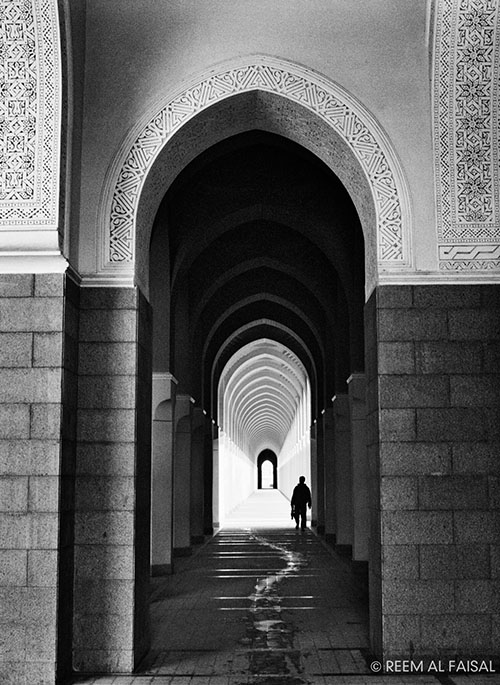
Meanwhile, under the US-sponsored, so-called “Abraham Accords” of September 2020, the UAE and Bahrain have joined Egypt and Jordan in officially normalizing relations with Israel. This has set off a boom in Israeli trade and travel to the Gulf. But it is telling that almost no Gulf Arabs have yet braved the potential unpleasantness of a visit to Israel. The Abraham Accords are clearly losing their luster. The United States has failed to provide the arms transfers to the U.A.E. that were an important inducement for them. Israel has intensified both its anti-Palestinian pogroms and settlement activities. At the World Cup in Qatar, Israelis were able for the first time directly to experience the intensity of Arab objections to their dehumanization and maltreatment of their captive Arab populations.
The Israel-Palestine conflict may briefly have receded from the regional diplomatic agenda but it now seems poised to return in force. The Abraham Accords remain in effect but show no sign of being more likely to produce Arab acceptance of Zionism’s insistence on Jewish supremacy in Palestine than the Camp David accords did 44 years ago. The latest Arab Opinion Index poll shows that 84.3 percent of Arabs oppose recognizing Israel, with three-fourths citing Israel’s treatment of the Palestinians and racism as the reason. Only 5.1 percent cite religious reasons.
The two proposals for peace with Israel that the Saudis pushed the Arab League to endorse at Fez in 1982 and Beirut in 2002 — both of which Israel ignored — may or may not still be on the table. The push by Israel’s latest government for normalization of relations with Saudi Arabia has just evoked a statement from Riyadh that, while this would be in the interest of the region, it cannot occur without “giving the Palestinians … dignity, and that requires giving the Palestinians a state.” No offer of such a state has ever been made by Israel and none is in prospect. The Abraham Accords do not seem not solidly grounded and may prove ephemeral.
The Gulf Arabs’ rapprochement with Israel is based on cynical self-interest — a desire to exploit Israel’s hammerlock on U.S. politics to retain American support for their security, shared hostility to Iran, and admiration for the cutting-edge surveillance technology Israel has developed to sustain a police state in occupied Palestine. Normalization with Israel is an expedient.
The U.S. Israel Lobby, once hostile to the Gulf Arabs, now defends their interests in Congress. Both Iran and the GCC states take seriously Israeli threats to take down the Islamic Republic. The Zionist state has an impressive record of unprovoked, preemptive, or vengeful surprise attacks on other countries in its region, including Suez in 1956, Egypt in 1967, an Iraqi nuclear reactor in 1981, Lebanon in 1982, a suspected Syrian nuclear reactor in 2007, and intermittent savage assaults on the inhabitants and infrastructure of Gaza. And Israel has a credible strategy aimed at dragging the U.S. into a war that would gut Iran as an enemy, just as America gutted Israel’s most formidable Arab enemy, Iraq, twenty years ago.
American and Israeli intelligence agencies have both repeatedly concluded that Iran halted its nuclear weapons program in 2004 and has not renewed it. The clerics who rule Iran have declared nuclear and other weapons of mass destruction to be morally forbidden. Nevertheless, fearmongering about Iran remains a central theme of demagoguery in Israel. The return of Benjamin Netanyahu as prime minister ensures that this will not change.
Intelligence agency findings notwithstanding, it is an article of faith in both the United States and in Israel that Iran is poised to emulate the Zionist state by going nuclear, voiding Israel’s nuclear monopoly in its region. Israel acquired such weapons of mass destruction 50 years ago through thefts of nuclear materials, clandestine programs, and diplomatic deceptions. The United States has abrogated the painfully negotiated agreement with Iran that had imposed international controls on its civilian nuclear programs. Freed of all constraints, Iran is now on the verge of nuclear latency — able to weaponize enriched uranium at will.
The United States has recently joined Israel in at least three exercises aimed at perfecting an attack on Iran. But an actual war with Iran would be disastrous for Israel, which would likely face bombardment by Iranian-armed proxies in Lebanon and Syria as well as incoming missiles from Iran itself. Israeli forces would have to cross the Arabian Peninsula and the U.S. would have to use bases there to strike Iran. This ensures that Iran would retaliate against its Arab neighbors as well as against Israel and American forces in the region.
Israel and the United States both wield nuclear arsenals. Threats by both to attack Iran provide it with ample reason to acquire a nuclear deterrent of its own. It seems almost inevitable that Tehran will eventually set its religious scruples aside and do so. Saudi Arabia and other countries in the region have made it clear that they will then match Iran by developing and fielding their own nuclear weapons.
None of the parties to this imbroglio seems to be thinking about how to prevent a war, avoid nuclear metastasis in the Middle East, or denuclearize the region. Discussion of Israeli nuclear disarmament is taboo in the West, efforts to restore the constraints imposed on Iran by the Joint Comprehensive Plan of Action (JCPOA) have ceased, and maximum pressure for regime change in Tehran has replaced U.S. dialogue with the Islamic Republic. Washington’s policies of ostracism, its expressed hopes for regime change, and its application of “maximum pressure” on Iran seem very likely eventually to produce the same results they have with North Korea — an Iran armed with nuclear-tipped ballistic missiles aimed at both America and its regional allies, not just Israel.
Unlike Israel, the principal concern of the Gulf Arabs has not been Iran’s alleged effort to develop nuclear weapons, but the sphere of influence Tehran has built in Iraq, Lebanon, Syria, and Yemen, and the foothold it could yet acquire in Bahrain. From the perspective of Riyadh and other Arabian capitals, this constitutes Iranian strategic encirclement and urgently demands countermeasures. Yet U.S. negotiations with Iran have consistently failed to address its regional influence and activities, focusing only on the question of concern to Israel — its nuclear enrichment programs. Now negotiations have ceased, and the United States no longer maintains any dialogue with Iran.
This is an implicit U.S. abdication of responsibility for the defense of Gulf Arab interests by any means other than military. It invites the countries of the GCC to explore their own ways of countering Iran. They have tried and failed to accomplish this with covert action in Iraq and Syria, political intervention and financial inducements in Lebanon, war in Yemen, and the isolation of Qatar. They have now turned to diplomacy.
Saudi Arabia and Bahrain cut ties with Tehran in January 2016 after protesters attacked the Saudi embassy and consulates in Iran following the Kingdom’s execution of its al-Ahsa region’s Shi’a leader, Nimr al-Nimr. In solidarity, Kuwait and the U.A.E. then downgraded diplomatic relations with Tehran. But in April 2021, the Kingdom resumed bilateral dialogue with Iran. In 2022, both Kuwait and the U.A.E. restored full diplomatic relations with Tehran.
Saudi-Iranian dialogue is a work in progress but a month ago, at Davos, the Saudi foreign minister described the decision by his country and other Gulf Arab states to focus on their economies and development as a “strong signal to Iran … that there is a pathway beyond traditional arguments and disputes toward joint prosperity.” This is a thinly veiled inducement for Iran to seek economic benefit by exploring the crafting of a less confrontational regional order.
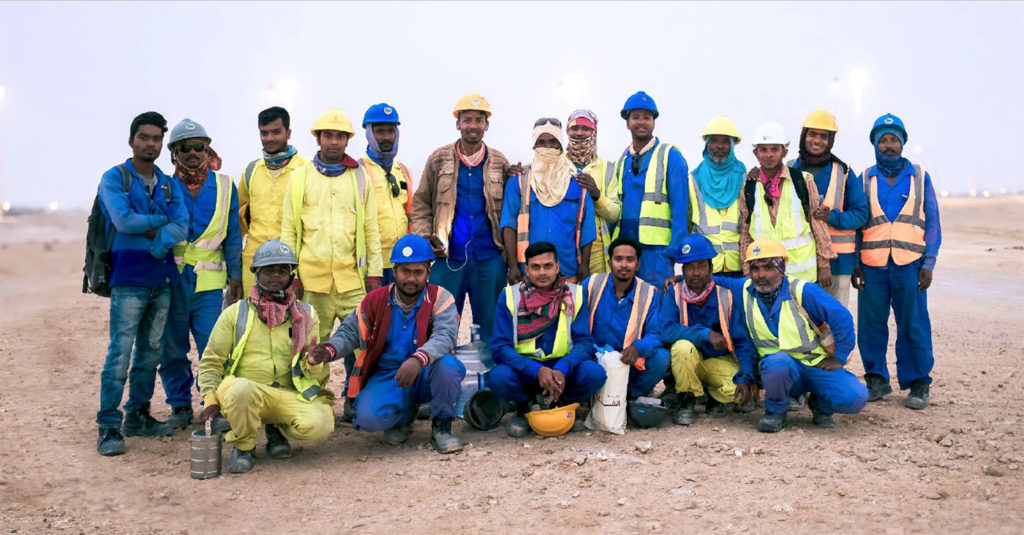
Oil-funded prosperity gives the GCC countries major influence internationally. Remittances by expatriate workers in the GCC have long been a driver of economic development in South and East Asia as well as East Africa. The expat share in the population of Gulf Arab societies varies from less than 40 percent in Saudi Arabia to 88 percent in the U.A.E. The remittances of these workers have constituted a largely unremarked but massive transfer of development assistance to their societies. The technical skills they have acquired in the Gulf have contributed significantly to the modernization of their homelands. Now, however, especially in Saudi Arabia, serious efforts to replace expat labor with local citizens are underway. As remittances decline, official foreign assistance programs by GCC countries to their economic partners will gain leverage.
Gulf Arab diplomacy has always relied not just on financial enticement of individuals but on official aid. Saudi Arabia has been a particularly generous donor to less developed Muslim countries, at one point contributing six percent of its GDP to foreign aid with few, if any, strings attached. The Kingdom has just declared that it will condition future development assistance on economic reform. It is unclear whether the U.A.E., which despite its small size is one of the ten largest aid donors internationally, will follow suit. But it seems that the Gulf Arabs intend in future to tie their aid to their interests rather than to generalized support for religious institutions, humanitarian causes, poverty alleviation, refugee support, and disaster relief. They have the financial heft to extend their influence around the globe.
The Gulf already houses 18 sovereign wealth funds with a combined value of almost $4 trillion, about one-third of the global total. This gives the region enormous financial power. The U.A.E.’s eight funds control $1.4 trillion, Saudi Arabia’s fund has accumulated $600 billion and is aiming for $1 trillion by 2025, Kuwait’s is over $700 billion, and Qatar’s is about $450 billion. These funds are now being used to support visionary, high tech domestic development as well as profitable investments and influence operations abroad.
The Middle East is ceasing to be the object of history and again becoming one of its authors. We are only beginning to see what it will write and what role we will play in the global future..
For example, Saudi Arabia’sصندوق الإستثمارات العامة [PIF] is not just bankrolling well-known megaprojects in the Kingdom like NEOM and Qiddiya, but funding and launching Saudi companies in 13 diverse sectors: construction/development; financial services/investment; entertainment, leisure, and sports; information and communications technology; aerospace and defense; metals and mining; renewables and utilities; food and agriculture; healthcare; retail and consumer goods (including e-commerce); automotive; transport and logistics; and real estate. In doing this, the Saudis are reinforcing innovative institutions like the King Abdullah University of Science and Technology (KAUST), billed as the rebirth of the بيت الحكمة [“House of Wisdom”] – the Baghdad-based intellectual center of global innovation during the golden age of Islam. The Gulf Arabs are applying their wealth to enabling Arab civilization to reemerge as a partner and competitor not just with the Euro-Atlantic world, but also with other resurgent civilizations like those of China, India, Japan, and Korea.
GCC societies are now in astonishingly rapid evolution. The transformations include, among other things, the assimilation of global norms of trade and investment; the growth of capital markets; the upgrade of educational standards; the suspension of gender apartheid and the entry of women into the labor force; openness to previously banned creativity in music, theatre, and film, and the replacement of foreign with indigenous talent. Saudi Arabia, once harder for Westerners to visit than Tibet, now seeks to become a major tourist destination.
As the Gulf Arabs strive to renew Arab centrality in global affairs, they are reaching out to East and South Asia as well as to Russia and the increasingly robust economies of Africa. This makes them potent catalysts in the crafting of a new, multipolar world order, implicit opponents of Washington’s effort to sustain U.S. global primacy, and balancers between rival great powers like China, India, Russia, and the United States. There is much more to the Arabian Peninsula than the world’s greatest concentration of hydrocarbons. It has not played such an influential role in global affairs since Islam exploded from it in the 7th century.
The Middle East now challenges American statecraft and diplomacy to set aside the purely military and ideological approaches that have defined recent U.S. policy and to replace custodial paternalism with respect for political and economic orders that differ from our own. The nations of the region seem determined to assert a role between East and West and North and South that draws prosperity from all quadrants of the globe. Their societies are in the midst of metamorphoses that build on their traditions rather than imported models and that provide them with increasing confidence that they can find their own way to modernity. This has enormous implications. We have seen something like it before in the confusing events that accompanied the European renaissance and the modernization of Japan and China, both now global powers.
These developments are a reminder that the Middle East is the epicenter of the Dar al-Islam, a global community of two billion people who are the majority in over 50 counties, including several with the capacity to become world powers. After years of exporting religious bigotry, the region’s Arabs are rediscovering the tolerance that made Islamic civilization great. Sadly, as they do so, Zionist Israel is traveling in the opposite direction, abandoning global Judaism’s humane emphasis on the pursuit of justice inspired by scholarly reasoning about ethics for the institutionalization of injustice and ethno-religious hatred. And Iran has yet to find a balance between competing sources of national identity.
To conclude: the Middle East is ceasing to be the object of history and again becoming one of its authors. We are only beginning to see what it will write and what role we will play in the global future.
Ambassdor Freeman gave this talk, “From Pawns to Global Powers: The Nations of the Middle East Strike Back,” by video to Princeton University’s Institute for the Transregional Study of the Contemporary Middle East, North Africa, and Central Asia, on Feb. 14, 2023.



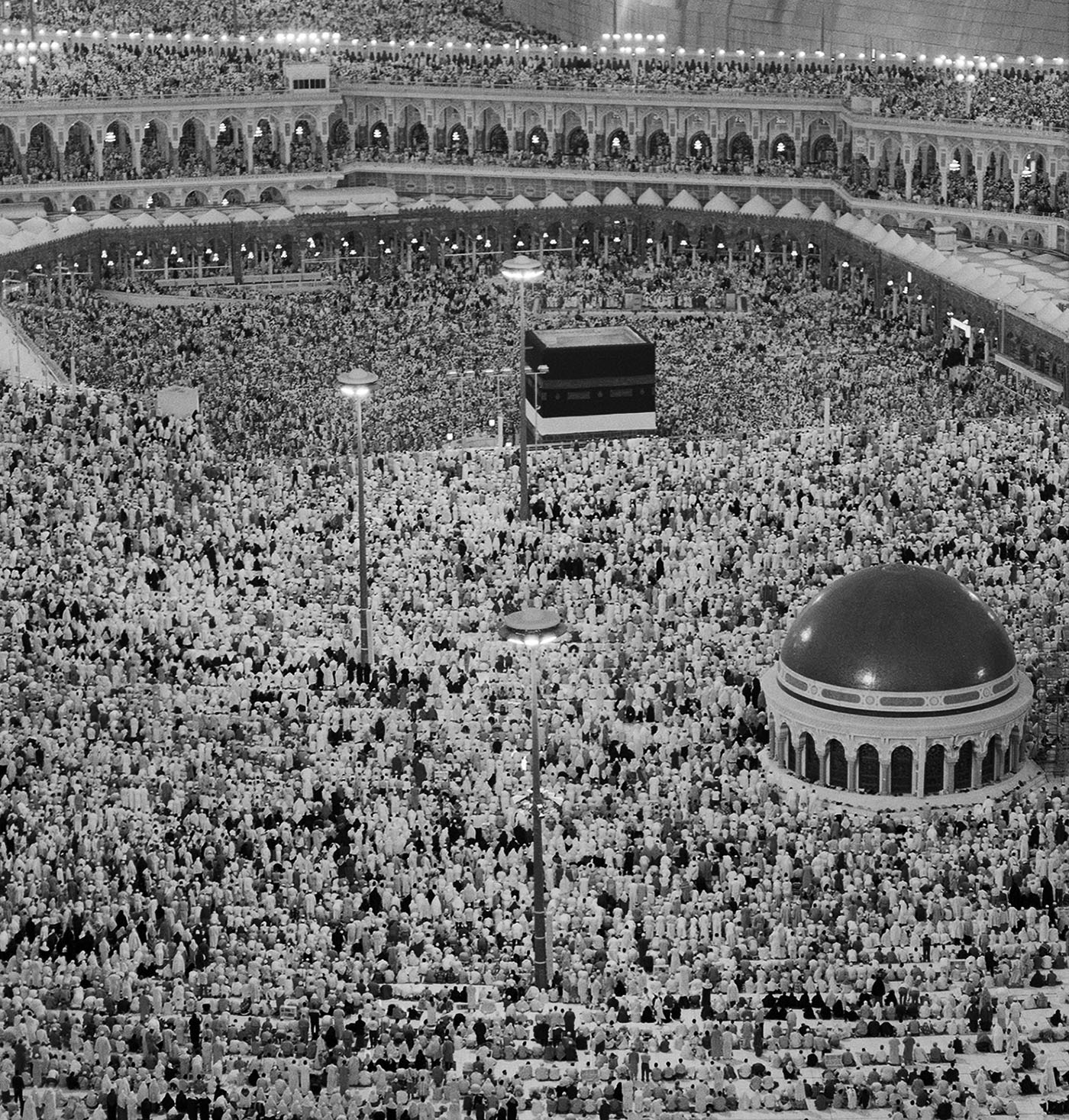
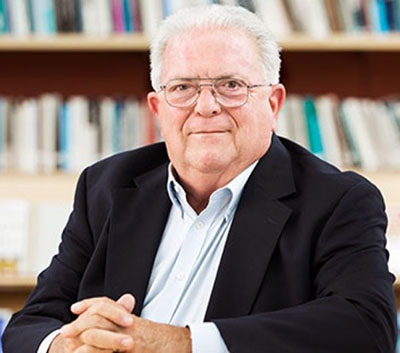

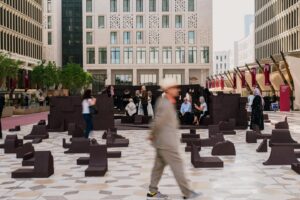

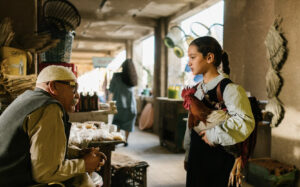





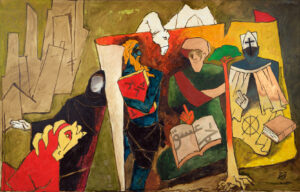
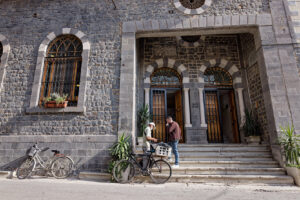



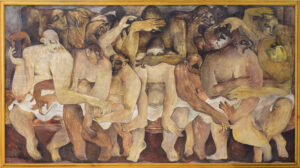





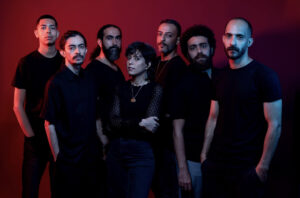



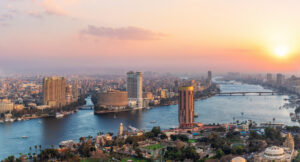





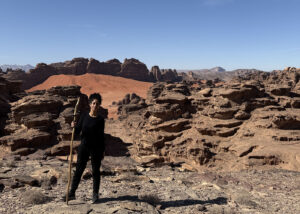




















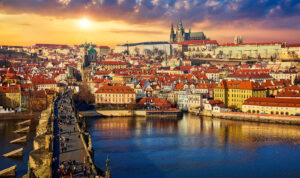
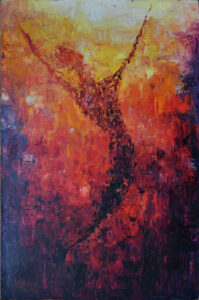











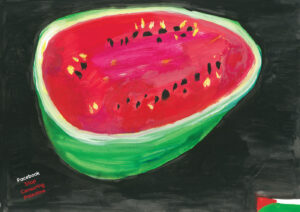






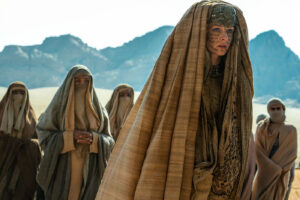

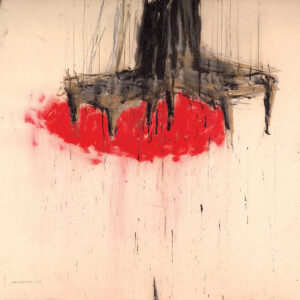






















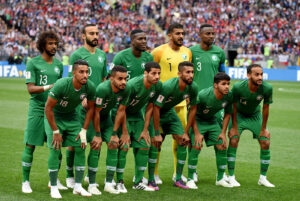






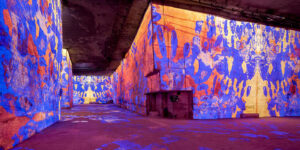


























































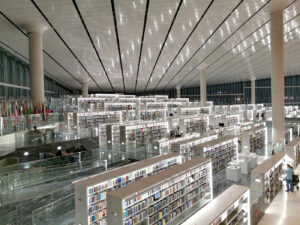












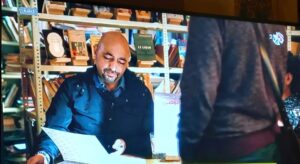
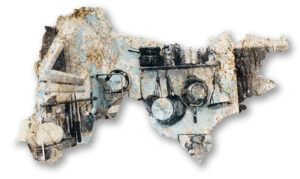

















































































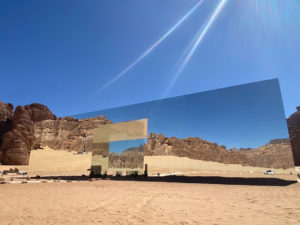






































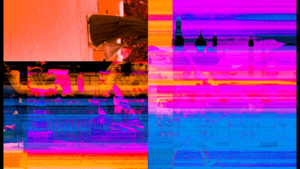
















Thanks be for Chas Freeman, the most knowledgeable truth-teller regarding the SWANA situation and the clumsiness of the US’s diplomacy and generally incompetent and destructive warmongering. No telling how different this country might have been had Freeman been able to become a member of President Obama’s advisors. But the Zionist lobby and warmongers were too influential. People need to post and repost this informative talk and use it to educate their friends and acquaintances. Many thanks to TMR for publishing it!!